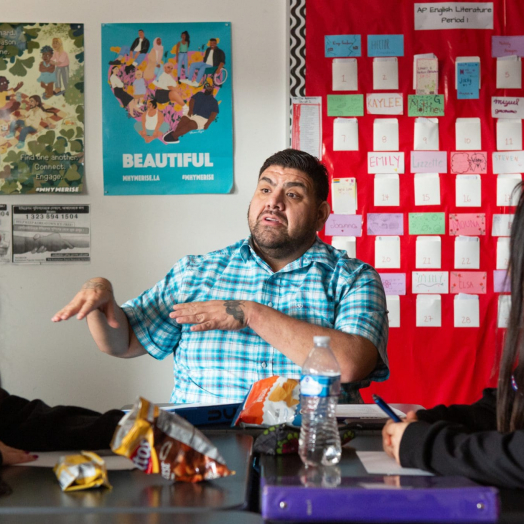Education Data 101What is Responsible Data Use?
What is Responsible Data Use?
Data is a valuable tool that should be used to help, and never to harm, individuals.
Using data responsibly is more than just adhering to data privacy and security laws, leaders must create a culture in which data is trusted and used ethically to support individuals.
Summary
How Leaders Can Support Responsible Data Use
- Communicate clearly about your values and goals for data use; data should always serve a clear purpose.
- Engage community stakeholders in crafting policies and practices that require data collection and use, especially stakeholders who are directly affected.
- Center privacy in the design of data policies and practices.
- Be transparent about how data is used and protected to build trust with the public and communities you are serving.
- Train people to use data. Ensure everyone who uses data has the ability to use data effectively and ethically.

Related Resources
Learn more about how to support responsible data use.
Fact Sheet //
Safeguarding student data is more than just a box checking exercise—it’s a foundational part of effective data use.
Case Study //
Washington, DC, leaders engaged stakeholders to ensure their new report card met the needs of all families.
Report //
When school and district administrators are empowered to lead a culture of data use, students do better.
Fact Sheet //
High-quality education data are essential for improving students’ achievement in school and preparing them for success in life.
Report //
This resource provides facts about common education data misconceptions, including the perceived federal role in data collection, sensitive student information, and FERPA.
Report //
Teachers can improve their practice--and student outcomes--when they understand how to use data effectively and ethically. This brief for state policymakers offers a proposed definition of data literacy along with recommendations for state and federal policymakers.
Responsible Data Use in the News
Case Study //
Washington state is using data to improve outreach to income eligible students about financial aid options.
Case Study //
Iowa’s C3 system aims to bridge the gaps across the state’s early childhood data landscape.
Case Study //
Indiana is investing in its data workforce and privacy capacity, and can serve as a model for other states.
Our Work
We envision a world where data is used to drive systemic change, economic mobility, and student success.
About Us
We advocate to change the role of data to ensure that data works for everyone navigating their education and workforce journeys.

